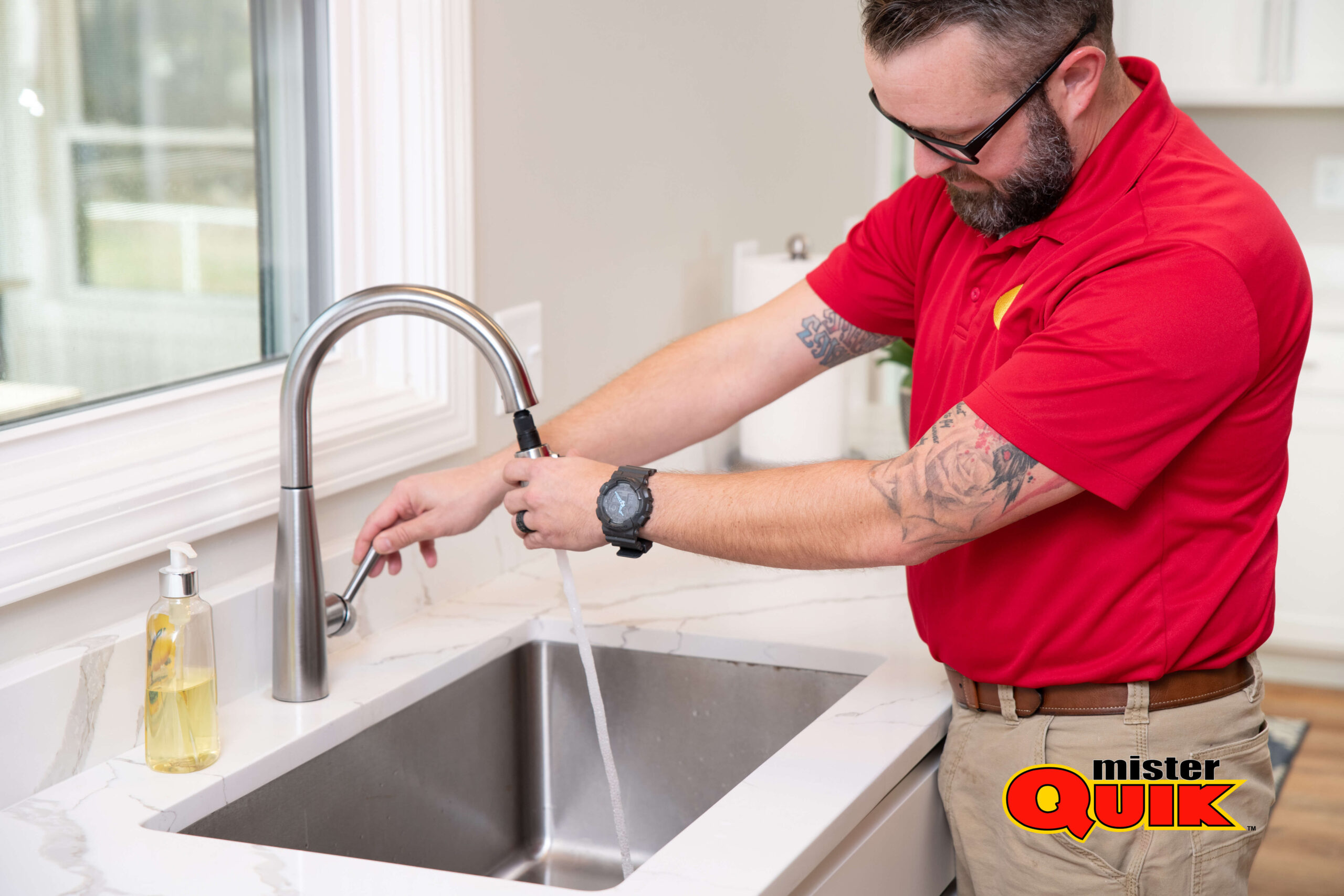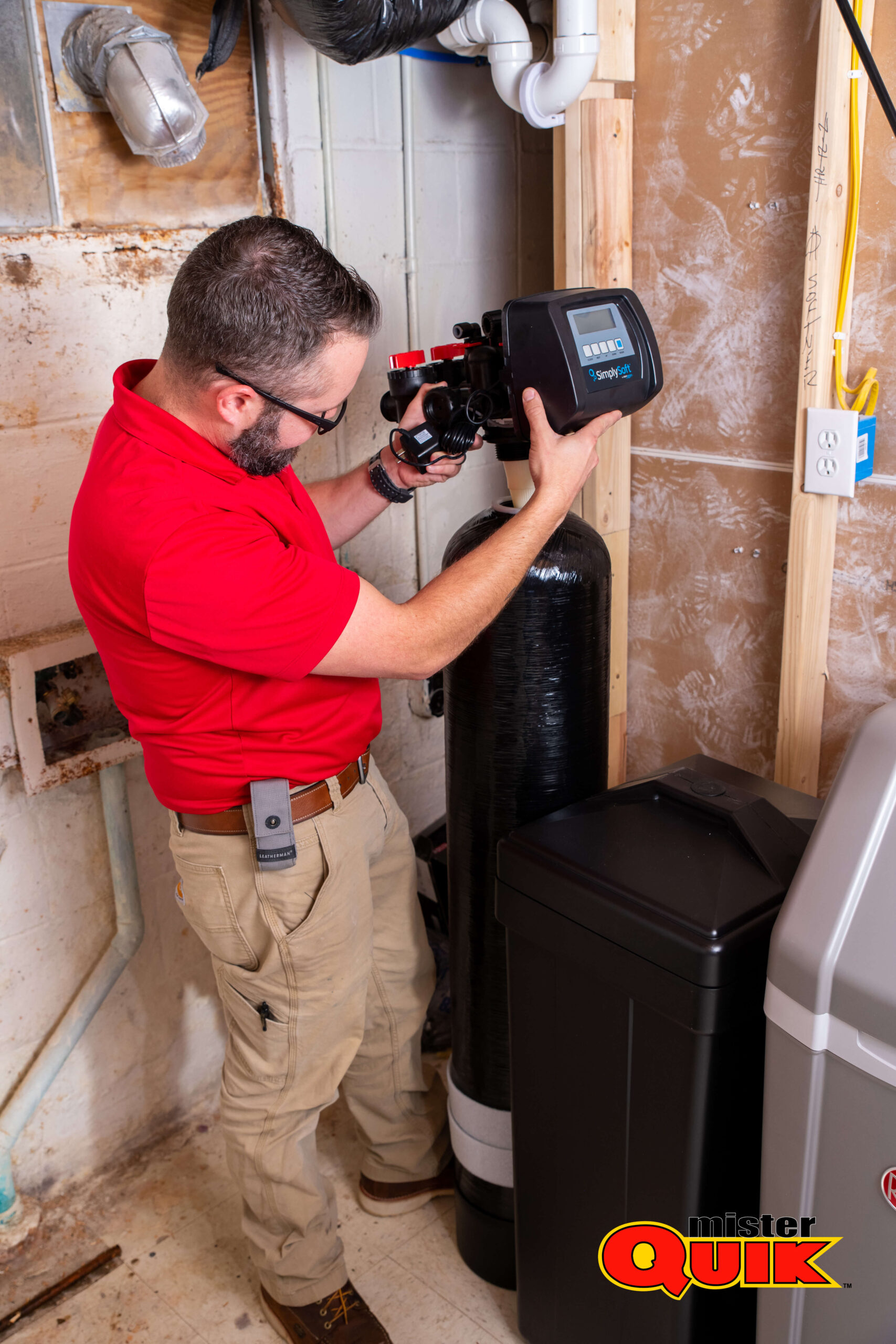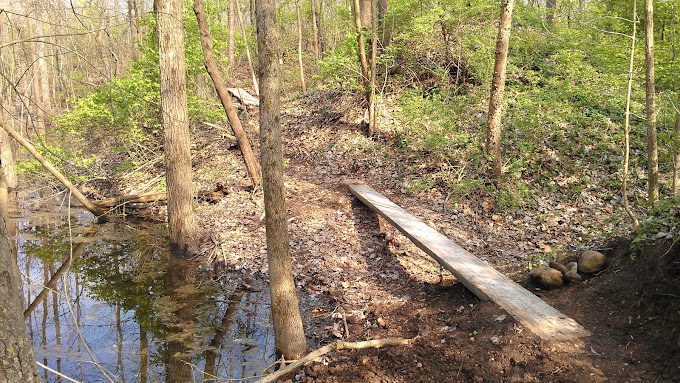Residential Anderson- Soft water Systems

Anderson- Soft water systems
From soap scum buildup on dishes to dry skin and hair, hard water can impact various aspects of your daily life. Thankfully, there’s a solution: soft water systems!
What are soft water systems?
These systems address the issue of hard water by removing the minerals that cause it, primarily calcium and magnesium. The result? Softer water that lathers easily, leaves less residue, and provides various benefits for your home and family.
Benefits of Anderson-Soft Water systems:
- Improved cleaning: Softer water makes it easier for soap to lather and rinse clean, leaving your dishes, clothes, and even your hair feeling cleaner.
- Reduced mineral buildup: Say goodbye to white film on faucets, showerheads, and around drains. Soft water minimizes mineral deposits, keeping your plumbing fixtures looking their best.
- Skin and hair health: Softer water can be gentler on your skin and hair, reducing dryness and irritation.
- Appliance efficiency: Hard water buildup can reduce the efficiency of appliances like water heaters and dishwashers. Soft water can help them operate more efficiently and potentially extend their lifespan.
Finding the right soft water system for your Anderson home:
Mister Quik Home Services can help you every step of the way:
- Free consultation: Our water experts can discuss your concerns and answer any questions you may have about soft water systems.
- Water testing: We offer hard Water testing to assess your water hardness level and recommend the most suitable system.
- Soft water system installation: Our qualified technicians will install your chosen system efficiently and ensure it functions properly.
- Ongoing maintenance and support: We offer maintenance plans to ensure your system continues to run smoothly and efficiently.
Anderson- Soft water system cost
Living in Anderson, you might be considering a soft water system to address hard water challenges. While the benefits of soft water are clear, understanding the associated costs is essential for making an informed decision.
System size: The size of the system, determined by your water usage and household size, plays a significant role in the cost. System type: Different types of softeners, like salt-based or salt-free, offer varying functionalities and may have different price points. Features and functionalities: Additional features like digital controls, self-cleaning capabilities, or smart connectivity can impact the cost. Installation complexity: The complexity of installing the system in your home can affect the total cost.
While online quotes might offer a starting point, consider the value of personalized consultation and local expertise. Mister Quik Home Services understands the specific water challenges in Anderson and can offer customized solutions that fit your needs and budget.
We'll answer your questions, provide a transparent cost breakdown, and help you explore the best options for achieving soft water comfort and convenience in your Anderson home. Remember, a soft water system can be an investment that pays off in the long run, saving you money and enhancing your daily life.
Soft water may feel slimy to some individuals due to its reduced mineral content, particularly calcium and magnesium ions, which are commonly found in hard water. The absence of these minerals in soft water can create a slippery or “slimy” sensation on the skin when combined with soap or body wash. Typically, the initial transition from hard water to soft water will make this sensation more apparent, and most find that their sensitivity to that sensation diminishes over time.
Rainwater is naturally soft because it is devoid of the minerals typically found in hard water sources such as groundwater or surface water. Rain forms when water vapor in the atmosphere condenses and falls to the ground as precipitation. Since rainwater does not pass through soil or rock formations, it does not pick up significant mineral deposits like calcium or magnesium, making it naturally soft. However, rainwater can pick up pollutants and contaminants from the atmosphere as it falls, so it may require treatment before consumption.
While soft water is generally safe for consumption, individuals on sodium-restricted diets or those with certain health conditions, such as hypertension or kidney problems, may need to limit their intake of softened water. Water softeners often use ion exchange processes that replace calcium and magnesium ions with sodium ions, increasing the sodium content of the water. High sodium levels in softened water can be a concern for individuals who need to monitor their sodium intake for medical reasons.
Boiling and cooling hard water can help precipitate minerals, making it softer. Distillation, which involves boiling water and collecting the steam as it condenses, effectively removes minerals and impurities. Rainwater collection provides naturally soft water that can be stored for various household uses. Filtration methods like activated carbon filters or reverse osmosis systems can also remove minerals and impurities, resulting in softer water. Lime softening, where lime is added to hard water to precipitate minerals, offers another natural method for softening water.
A water softener turning water brown could indicate several issues, including sediment buildup in the softener’s resin tank, rusty pipes, or the presence of iron bacteria in the water supply. Call a professional for help! Temporarily bypass the water softener until the issue has been resolved, if you have a bypass valve installed. This can help mitigate damage to your fixtures.
How does a water softener work with salt
While the benefits of soft water are well-known, understanding the science behind it can be fascinating.


The magic of salt inSoft Water systems:
Most water softeners use a process called ion exchange, and salt plays a crucial role in this process. Here’s a simplified explanation:
- Hard water enters the softener: Water from your home’s supply enters the softener tank, containing a bed of resin beads.
- Resin beads capture hardness minerals: These beads are like tiny magnets, attracting and holding onto the calcium and magnesium minerals that make water hard.
- Saltwater solution (brine) is created: Salt is mixed with water in a separate tank within the softener, creating a brine solution.
- Brine regenerates the resin beads: The brine is periodically pumped through the resin bed. The salt in the brine displaces the captured hardness minerals from the beads, essentially “recharging” them to capture more hardness in the future.
- Regenerated water exits the softener: The softened water, now free of the captured hardness minerals, flows out of the softener and into your home’s plumbing system.
The importance of salt in Anderson-Soft Water systems:
- Essential for regeneration: Without salt, the resin beads wouldn’t be able to release the captured hardness minerals and become ineffective at softening water.
- Choosing the right salt: Different types of salt are suitable for water softeners. Mister Quik Home Services can advise you on the best salt type for your Anderson-Soft Water system.
Beyond the science: Enjoying the benefits of soft water in Anderson:
While understanding the science behind the salt’s role is interesting, the true benefit lies in the experience. By removing hardness minerals, soft water offers numerous advantages:
- Improved cleaning: Softer water lathers better, making it easier to clean dishes, clothes, and even your hair, while leaving less residue.
- Reduced mineral buildup: Say goodbye to white film on faucets and showerheads! Soft water minimizes mineral deposits, keeping your plumbing fixtures looking their best.
- Potential cost savings: Softer water can improve appliance efficiency, potentially reducing energy bills and extending appliance lifespans.
Let us help you unlock the magic of soft water and experience the numerous benefits it offers for your Anderson home. We’ll guide you through the process and ensure a smooth transition to enjoying cleaner, softer water.
Hard water versus soft water
Living in Anderson, you might have encountered challenges with your tap water, like difficulty getting soap to lather or white film on dishes. These could be signs of hard water. While safe to drink, hard water can present inconveniences. But what about soft water? Let’s explore the differences and how they might affect your Anderson home.




Hard water: Contains high levels of dissolved minerals, primarily calcium and magnesium. While these minerals are beneficial in some ways, they can impact the properties of water. Soft water: Contains fewer minerals, making it "softer" and easier for soap to lather. This is often achieved through treatment processes like water softeners.


Soap scum buildup: Hard water makes it harder for soap to lather effectively, leaving residue on dishes, clothes, and even your skin and hair. Mineral deposits: The minerals in hard water can build up over time, leaving white scale on faucets, showerheads, and around drains. Appliance inefficiency: Hard water buildup can reduce the efficiency of appliances like water heaters and dishwashers, leading to higher energy bills and potentially shortening their lifespan.




Improved cleaning: Softer water lathers easily and rinses clean, leaving dishes, clothes, and even your hair feeling cleaner. Reduced mineral buildup: Say goodbye to white film! Soft water minimizes mineral deposits, keeping your plumbing fixtures looking their best. Potential cost savings: Softer water can improve appliance efficiency, potentially reducing energy bills and extending appliance lifespans.




If hard water is causing significant problems, soft water might be a desirable solution. Your personal preferences: Some people prefer the feel of soft water on their skin and hair. Environmental considerations: Softening processes might have a slight environmental impact compared to using untreated hard water. Contact Mister Quik Home Services today
Soft water advantages
If you’ve ever battled soap scum buildup on dishes or felt disappointed by the lack of lather in the shower, you might be dealing with hard water. While not harmful to your health, hard water can present several inconveniences. Thankfully, there’s a solution: soft water! Let’s explore the numerous advantages of soft water in your Anderson home.
Enhanced Cleaning Power:
- Effortless lathering: Say goodbye to the struggle of getting soap to lather effectively. Soft water readily forms suds, making cleaning dishes, clothes, and even your hair a breeze. This translates to less soap usage and a more satisfying clean.
- Reduced residue: Hard water minerals leave behind a film that can dull surfaces and leave residue on dishes. Soft water, lacking these minerals, minimizes residue, leaving your dishes sparkling and surfaces gleaming.
Improved Skin and Hair Health:
- Gentler touch: Hard water can be harsh on your skin and hair, stripping away natural oils and leaving them feeling dry and irritated. Soft water, being less abrasive, can be gentler on your skin and hair, potentially reducing dryness and promoting a smoother feel.
Extended Appliance Lifespan:
- Combating mineral buildup: The minerals in hard water can build up inside appliances like water heaters and dishwashers, reducing their efficiency and potentially shortening their lifespans. Soft water, minimizing mineral buildup, can help your appliances work more efficiently and potentially last longer.
Potential Cost Savings:
- Improved appliance efficiency: As mentioned, soft water can help appliances operate more efficiently, potentially leading to energy cost savings.
- Reduced soap usage: With soft water’s superior lathering power, you might find yourself using less soap for various cleaning tasks, leading to potential cost savings on cleaning products.
Contact Mister Quik Home Services today!
Let us help you unlock the world of soft water and experience the numerous advantages it offers for your Anderson home. Remember, soft water can enhance your cleaning routine, improve your skin and hair health, potentially extend appliance lifespans, and even offer cost-saving benefits.
Is it okay to drink softened water
If you’re considering a water softener for your Anderson home, you might have questions about the safety of drinking softened water. While the process removes hardness minerals, it’s crucial to understand that soft water is generally considered safe for drinking. Let’s explore what you need to know.
Mineral removal: Water softeners typically use a process called ion exchange, which removes minerals like calcium and magnesium, responsible for water hardness. Impact on taste: The removal of these minerals can slightly alter the taste of your water, making it taste slightly "flat" compared to hard water. However, this is a matter of personal preference and many people find it more palatable.
Sodium content: The softening process often involves using salt (sodium chloride) to remove the hardness minerals. While the resulting increase in sodium content is minimal and usually falls within safe limits set by regulatory bodies, individuals on a sodium-restricted diet might want to consult with their doctor. Infants and formula: While generally safe, some guidelines recommend using un-softened water for preparing infant formula due to potential concerns around slight mineral imbalances impacting nutrient absorption.
Contact Mister Quik Home Services today!
Let us help you make informed decisions about your water treatment needs. We can address your specific concerns about Soft Water and explore the best solution for your home, ensuring both safety and improved water quality. Remember, understanding the facts and seeking professional advice can empower you to choose the right path for your water well-being.`
- Soap Scum: Check for soap scum buildup on dishes, clothes, and surfaces.
- Mineral Deposits: Look for white buildup on faucets, showerheads, and drains.
- Water Appearance: Observe if your water appears cloudy or has a metallic taste.
- Water Pressure: Monitor any changes in water pressure, which could indicate mineral buildup in pipes.
- Settings: Verify that the water softener is set correctly based on your water hardness level.
- Salt Levels: Check and replenish salt levels in the water softener if necessary.
- Appliance Performance: Assess if appliances like water heaters and dishwashers are working efficiently.
- Energy Bills: Compare recent energy bills to check for any unusual increases.
- Water Test: Schedule a water test with Mister Quik Home Services to determine the hardness level and explore solutions.
- Expert Advice: Consult with water quality experts for personalized recommendations and solutions.










